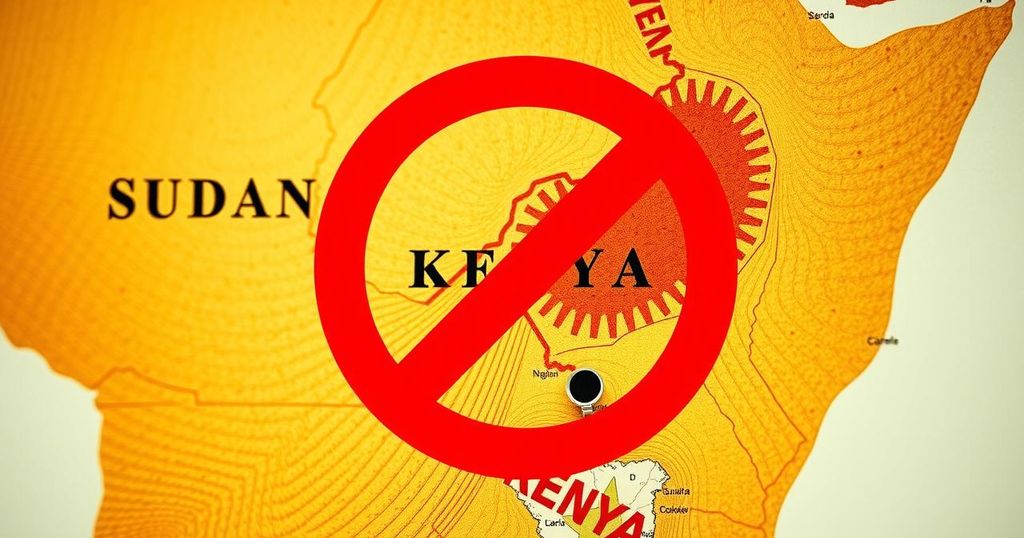Sudan has banned all imports from Kenya following the RSF’s establishment of a government in Nairobi. The ban aims to protect Sudan’s sovereignty and national security amidst escalating tensions. Kenya’s vital exports to Sudan, particularly tea, face significant disruption, impacting its economy and foreign exchange earnings.
Sudan has imposed a ban on all imports from Kenya, stemming from tensions caused by the hosting of the Rapid Support Forces (RSF) in Nairobi. The RSF, engaged in a protracted civil war, had recently signed a founding charter in Kenya to establish a parallel government in Sudan. In response, Sudan’s military government asserted that the ban was necessary to safeguard its sovereignty and national security. Prospective exports suspended include essential products like tea, food, and pharmaceuticals.
A decree by Sudan’s Ministry of Trade clearly stated that all imports from Kenya would be halted immediately across various entry points, including ports and airports. This development follows months of escalating tensions between the two nations, with Sudan recalling its ambassador to Kenya due to perceived conspiratorial actions aimed at supporting the RSF. Deeming the hosting of RSF meetings as “an act of hostility,” Sudan has taken a firm stance in this diplomatic rift.
Kenyan President William Ruto has faced criticism domestically for perceived favoritism towards the RSF. Conversely, Kenya has defended its role, asserting that meeting facilitation aims to broker a peaceful resolution to the Sudanese conflict without ulterior motives. Traditionally, Kenya and Sudan have maintained strong trade relations, particularly in agriculture and manufacturing, with tea being the primary export.
The ban is anticipated to severely impact trade and the economy. Economist Ken Gichinga noted that it would greatly reduce foreign exchange, leading to broader economic repercussions. The Kenyan government has yet to respond officially to the situation, although Agriculture Minister Mutahi Kagwe indicated that diplomatic negotiations to resolve market access issues are underway.
The timing of this import ban is critical, as Kenya’s tea exports were already diminishing due to the ongoing Sudan conflict, with a recent report indicating a 12% drop over the past year. Since the outbreak of war in April 2023, Sudan has experienced extensive destruction, further complicating supply chains and trade functionality. Vital infrastructure, such as ports and border crossings, have suffered damage, significantly curbing the movement of goods between Sudan and neighboring countries, including Kenya. The United Nations reported that the conflict has led to thousands of deaths and displaced more than 12 million people within Sudan.
Sources:
– BBCAfrica.com
In summary, Sudan’s import ban on Kenyan products reflects the heightened tensions following the RSF’s activities in Nairobi. The ban threatens to disrupt vital trade relations between the two nations, particularly impacting Kenya’s economy, which relies significantly on tea exports. The prolonged conflict in Sudan adds further complications to regional trade and investment dynamics. Diplomatic efforts are needed to address these emerging challenges and restore trade channels between Sudan and Kenya.
Original Source: www.bbc.com




